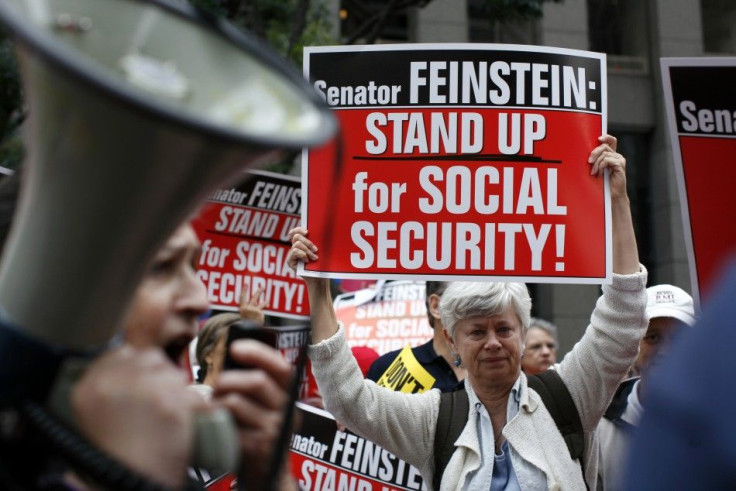Social Security and Republican Candidates: Not a Third-Rail Issue Anymore?

It used to be the third rail of politics: untouchable. A politician could hardly suggest reforming Social Security without triggering tremendous popular backlash.
But now, calls for major reform are commonplace, made all but inevitable by the program's dwindling cash stream. More startlingly, the idea of eliminating Social Security altogether has even entered mainstream discourse.
In November 1954, President Dwight Eisenhower wrote a letter to his brother containing a passage that has become a classic statement of the Social Security taboo.
To attain any success, it is quite clear that the federal government cannot avoid or escape responsibilities which the mass of the people firmly believe should be undertaken by it, Eisenhower wrote. Should any political party attempt to abolish Social Security, unemployment insurance, and eliminate labor laws and farm programs, you would not hear of that party again in our political history. There is a tiny splinter group, of course, that believes you can do these things. Among them are H.L. Hunt (you possibly know his background), a few other Texas oil millionaires and an occasional politician or businessman from other areas. Their number is negligible and they are stupid.
Americans Still Overwhelmingly Favor Social Security
The mass of the people still believe in Social Security, but Eisenhower's words don't seem so incontrovertible anymore.
Yes, Rick Perry faced a deluge of criticism for his characterization of Social Security as a Ponzi scheme and a monstrous lie -- but in the latest Gallup Poll, his support actually increased from 24 percent to 31 percent.
And while his Republican opponents, namely Mitt Romney and Michele Bachmann, seized the opportunity to score points against Perry by condemning his Ponzi scheme rhetoric, both of them have made similar statements in the past.
Suppose two grandparents created a trust fund, appointed a bank as trustee and instructed the bank to invest the proceeds of the trust fund so as to provide for their grandchildren's education, Romney wrote in his 2010 book No Apology. Suppose further that the bank used the proceeds for its own purposes, so that when the grandchildren turned 18, there was no money for them to go to college. What would happen to the bankers responsible for misusing the money? They would go to jail. But what has happened to the people responsible for the looming bankruptcy of Social Security? They keep returning to Congress every two years.
That doesn't call Social Security a Ponzi scheme in so many words, but it comes out to the same thing: accusing the U.S. government of stealing people's money and not keeping its promise to give the money back.
Bachmann took a similar position in a Fox News interview in February 2010, calling Social Security a tremendous fraud.
No company could get away with this, she said. They'd be thrown in jail if they ever tried to do what the federal government did with people's Social Security money.
Perry, Romney, Bachmann All Out-of-Sync with Voters on Social Security
To be fair, neither Romney nor Bachmann has talked about eliminating Social Security entirely, as Perry did in his book. But they're not exactly in a position to criticize his inflammatory rhetoric on the subject, either -- and all three are out of sync with voters on the issue.
A New York Times-CBS News poll released last week found that 79 percent of voters believed Social Security and Medicare were worth their costs. Even among Republicans, 75 percent said they supported Social Security and Medicare. So it doesn't seem like support for the programs has plummeted since Eisenhower wrote his letter in 1954 -- but the political consequences for candidates who do not support the programs have clearly lessened.
There is no question that candidates who advocate the abolition or privatization of Social Security are out of sync with voters, and when it comes to the general election, anti-Social Security stances will undoubtedly hurt them somewhat. But it's definitely not the third-rail issue that it used to be.
© Copyright IBTimes 2024. All rights reserved.











